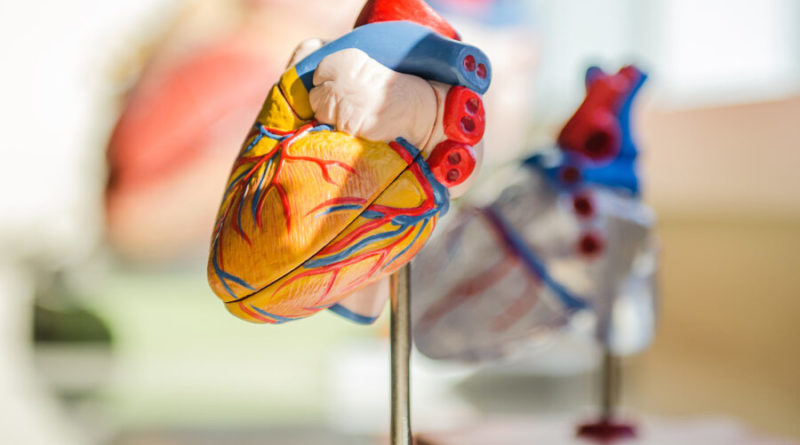Cardiovascular Diseases and COVID-19: twin emergencies to deal with during Pandemic
BY,Dr. Lanka Satyarama Krishna, MBBS,DNB,DM; Senior Consultant Interventional Cardiologist, Aster Prime Hospital, Ameerpet, Hyderabad
Severe Acute Respiratory Syndrome-Coronavirus-2 (SARS-CoV-2), at the root of corona virus disease or COVID-19, has been claiming lives in ways as diverse as the patient complications observed. It is highly transmissible and strikes with varying forms of severity.
It has affected lives of ordinary people but also severely impacted those suffering with various other deadly diseases. One such group are those suffering with Cardiovascular Diseases, who requires constant medical care. Their visits to hospitals, doctors had been curtailed due to pandemic for a specific reason that they are more susceptible to COVID. But they don’t have any alternatives as some times it leads to emergency. In such conditions, it is only an assurance and proper precautions by health care establishments that will allow these patients to overcome such situations.
Reassurance during Pandemic
For people who have underlying health conditions such as heart disease, the message has to be that your hospital, emergency room, or doctor’s surgery is safe, and if you need to go, you should. The risks of heart attacks and stroke far outweigh the risks of contracting COVID-19 and time is truly of the essence when heart troubles hit.
While telemedicine has been an important resource, it should not be seen as a replacement for in-person care nor should it be interpreted as a measure taken because hospital visits have become unsafe.
Under these circumstances the health care professionals and organizations are advised to take care of such patients with proper precautions so that they won’t contradict COVID during their stay and also will get required treatment.
Management of CVD patients during Pandemic
Individuals with established CVD are more susceptible to severe COVID-19. Added to this are the challenges of delivering care in settings where critically needed medical supplies and equipment might be hard to come by.
In order to deal with the situation, World Heart Federation Scientific Committee advised few measures that aim to support care-giving and treatment, with guidelines across the board.
Some of them are….
- COVID-19 patients need to be triaged or designated for care based on disease severity so that patients with moderate and severe disease are admitted in a separate ward or hospital depending on the available infrastructure.
- Further, patients also need to be triaged based on underlying health risks such as hypertension, diabetes, prior cardiovascular or respiratory disease, kidney failure and cancer as part of the process to identify patients with a higher likelihood of developing a severe form of COVID-19 and implement targeted care.
- Special attention must be given to ensuring that there are separate facilities in place for dealing with COVID-19 cardiac patients and non-COVID-19 cardiac patients including catheterization laboratories for performing invasive heart examinations.
These measures can assure these patients so that visit to hospital will not get them COVID and proper treatment is assured.
CVD and COVID-19
But the COVID pandemic has thrown some more challenges to those dealing with CVDs. As it is now getting clear that people suffering with CVDs are susceptible to COVID more.
According to Word Heart Federation Scientific Committee, Severe Acute Respiratory Syndrome-Coronavirus-2 (SARS-CoV-2), or COVID-19, continues to claim lives in ways as diverse as the patient complications observed. The healthcare community has found itself on the frontlines of a new disease that affects and exacerbates existing conditions in those with different forms of cardiovascular disease (CVD) or with other diseases that put the heart at risk.
It is also understood that people with comorbitities especially Cardiovascular Diseases are getting affected with the virus. Some research is also indicating that those recovered with COVID are also getting prone to strokes and clotting in the blood vessels. Still the exact relationship between two are not really understood but the initial research suggesting that COVID is leading to some sort of Cardiovascular Diseases.
COVID is also found to be affecting some form of heart condition or heart function are all involved: hypertension and diabetes, acute coronary syndrome, injury to muscle tissues of the heart, (myocardial injury), heart failure, and less heard of but prevalent diseases such as rheumatic heart disease and Chagas disease.
Twin Challenges
With this on this World Heart Day 2020, it is advised to focus more on taking necessary precautions to face the challenges posed by the Pandemic while creating awareness about the CVDs. Thus taking up the challenge to protect the patient in contracting COVID and protect them. Further reassure them that they should visit the health care facility with a confidence during emergencies.
The second challenge is that a kind of health condition imposed on COVID positive patients. These patients need special attention during the treatment and also after recovery. Awareness must be created to handle the health risks posed due to contracting the COVID and subsequent side effects especially during recovery period.
On this occasion, let’s join together to face these twin challenges thus saving the lives.




